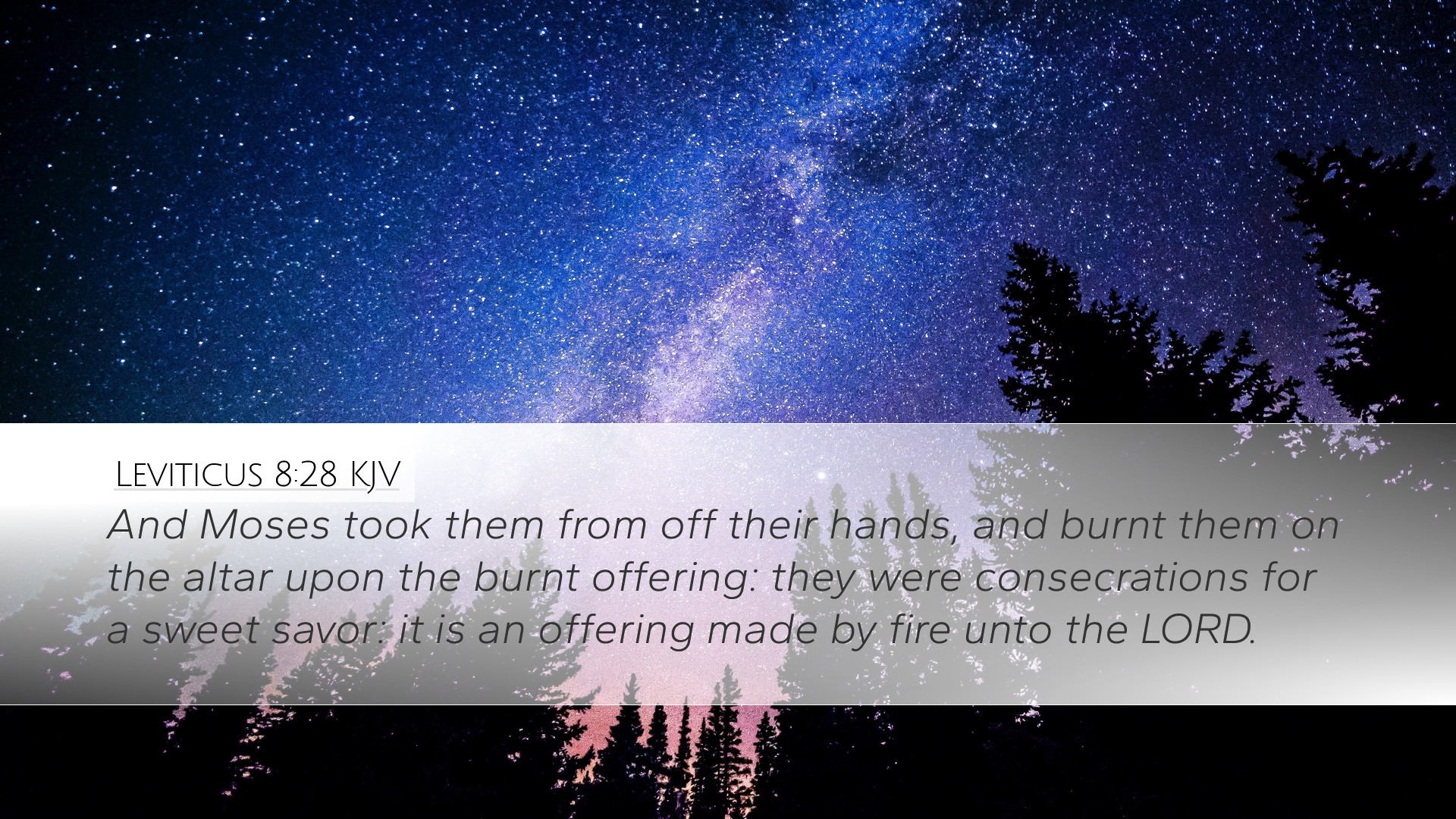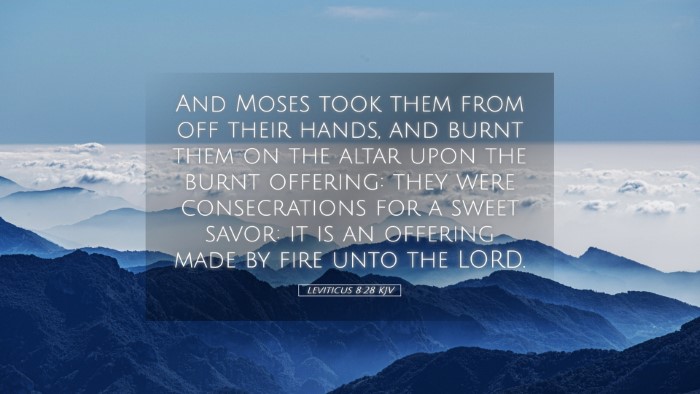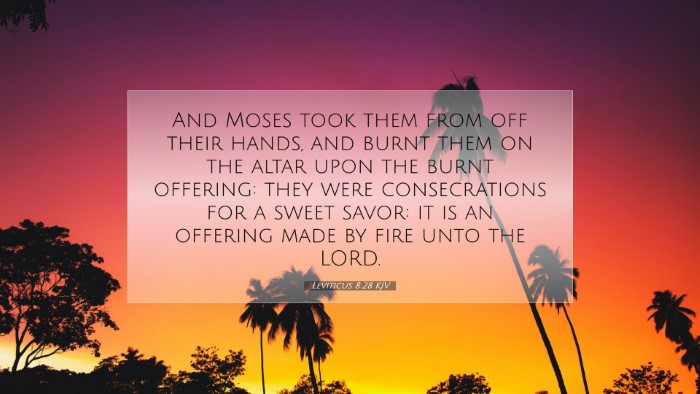Commentary on Leviticus 8:28
Leviticus 8:28 (KJV): "And Moses took them from off their hands, and burnt them on the altar upon the burnt offering: they were consecration for a sweet savour: it is an offering made by fire unto the LORD."
Introduction
This verse is part of the consecration of Aaron and his sons, marking the moment when they were set apart for their sacred duties as priests. It encapsulates the themes of sacrifice, holiness, and divine acceptance, all of which are foundational to the Levitical priesthood and the broader theological significance of worship in Israel.
Contextual Significance
The context of Leviticus 8 details the entire process of ordaining Aaron and his sons as priests. This chapter is crucial in understanding the transition from a common Israelite to a holy priesthood. The rituals were not merely ceremonial but were laden with profound theological meaning, pointing towards God's presence and the necessity of sanctification.
Theological Insights
This moment signifies the necessity of atonement and consecration. The offerings, which are burned on the altar, represent both the sacrifice for sin and the dedication of the priests to their holy ministry. As Henry notes, “the burnt offerings indicate the complete surrender of the offerer’s life and the total devotion to God.”
Furthermore, Clarke emphasizes that “the sweet savour” signifies divine acceptance, suggesting that the actions taken in obedience to God's commandments bring pleasure to Him. This incident foreshadows the ultimate sacrifice of Christ, who fulfills the law and establishes a new covenant.
Sacrificial Understanding
Both Barnes and Clarke highlight the symbolic nature of burnt offerings. In the ancient Near East, burnt offerings were an important part of worship, symbolizing complete consecration and the essentials of fellowship with God. The act of burning signifies that nothing of the sacrifice belongs to the offeror; it is entirely offered to God.
In this passage, God’s name is involved through the burning of the offerings which are done “upon the altar.” This reinforces the intimate relationship between the act of worship and its audience—God Himself. As indicated by Matthew Henry, “God had an eye to the fire that consumed the offerings.” It’s an act that creates a sweet scent which is vital in the fabric of Israel's worship.
Priestly Office and Its Implications
The consecration of Aaron and his sons underscored the priestly office's holiness and its role in maintaining the covenant relationship between God and Israel. This consecration ceremony directed the attention of the people towards the holiness that God demands. The priests, now set apart, had the responsibility to mediate between God and the people.
Henry further explains that the dispersion of the blood signifies life being dedicated to God. The role of the priest is elevated beyond that of merely functionary; they become pivotal in their community's spiritual life. Clarke observes that the priests’ anointing with blood and oil emphasizes their importance, indicating that ministry requires divine empowerment and the transformative work of the Holy Spirit.
Application and Reflection
For pastors and theologians, Leviticus 8:28 offers rich material for contemplating the nature of service, sanctity, and the seriousness of ministerial roles. The priesthood foreshadows the New Testament understanding of believers as a “royal priesthood” (1 Peter 2:9), mandated to live as examples of consecration and dedication to God.
The notions of sacrifice and surrender call for a reflective response in the contemporary believer's life. As modern Christians, the principle remains: our lives should be living sacrifices, dedicate to God’s service, echoing Paul's exhortation in Romans 12:1. The sweetness of our lives, offered to God, can impact our communities and bring glory to His name.
Conclusion
In summarizing Leviticus 8:28, it is clear that the act of burning offerings holds both historical significance and contemporary application. The insights from Henry, Barnes, and Clarke collectively emphasize the enduring principles of worship, the vital role of sacrifice, and the necessity of divine consecration. This passage not only highlights the solemnity of the calling in the priesthood but also invites every believer into a more profound commitment to holiness in their spiritual walk.


